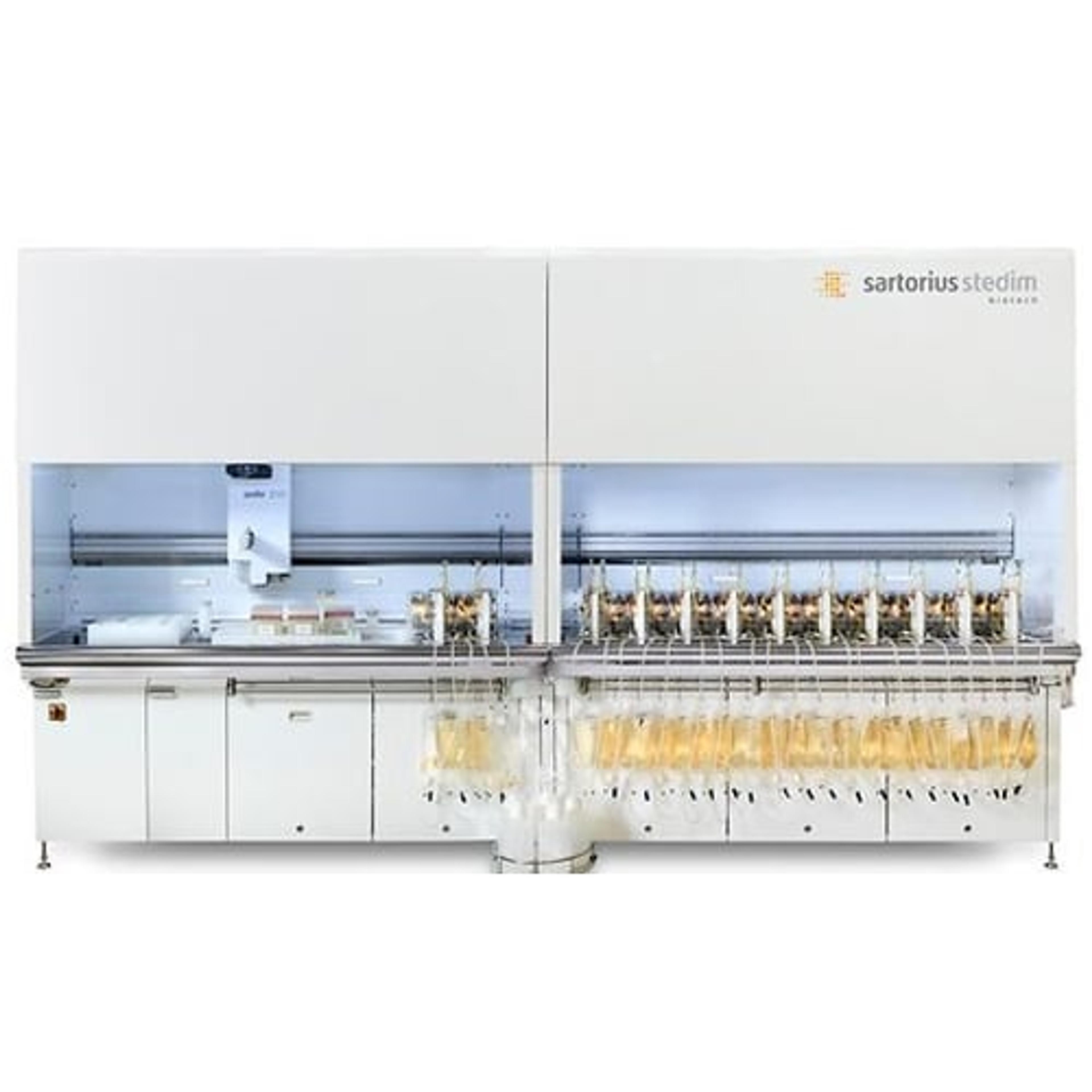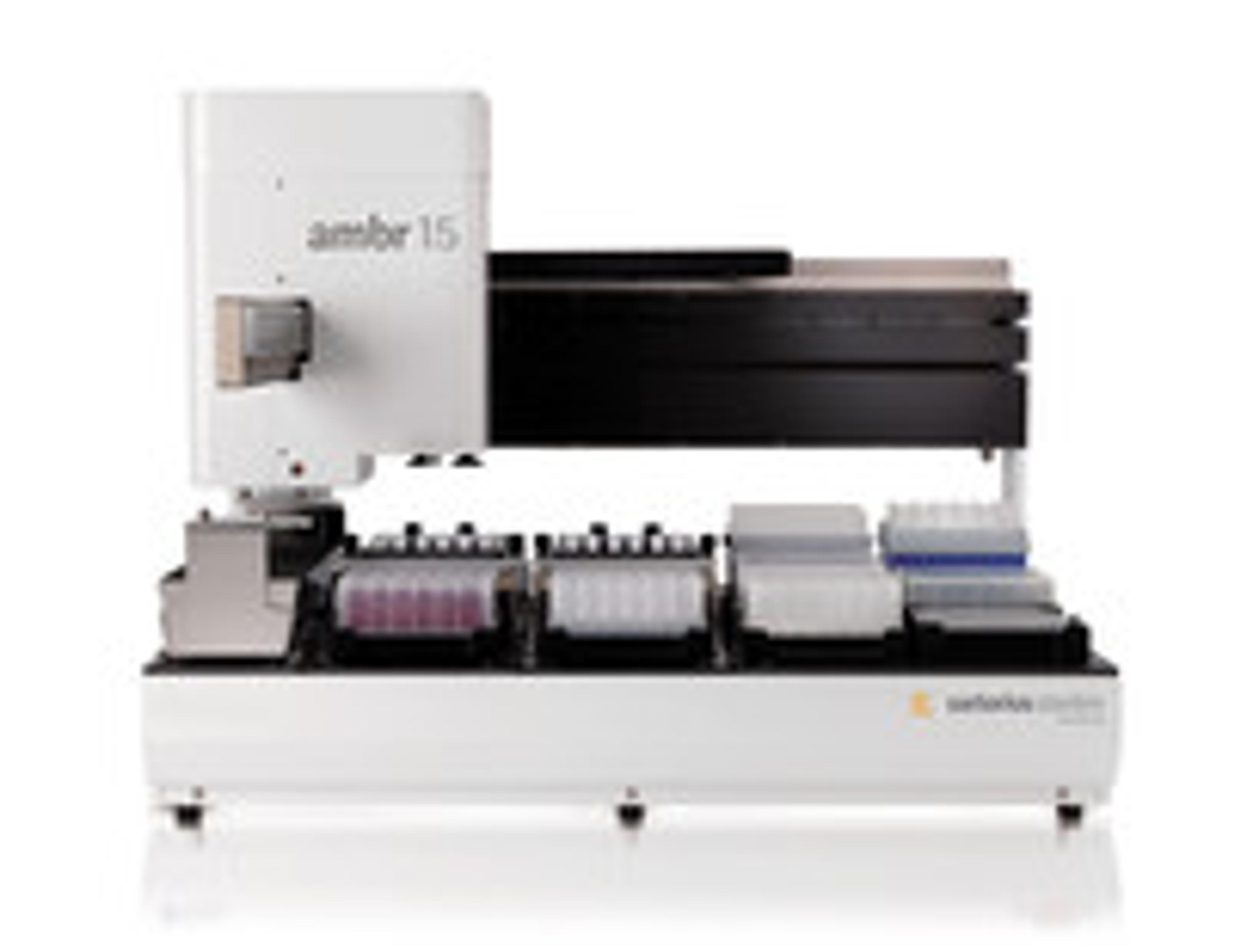Bioreactor Systems from Sartorius Get Time-Saving Overhaul with Integrated Online Biomass Measurement
31 Mar 2019Sartorius Stedim Biotech (SSB) has introduced an integrated online biomass measurement to its ambr® 15 fermentation and ambr® 250 high-throughput systems for microbial applications.
Already well known in the industry for fast tracking microbial screening studies and shortening process development timelines, the ambr® 15 fermentation and ambr® 250 high-throughput systems operate up to 24 single-use stirred bioreactor cultures in parallel. With the integration of online biomass measurement, SSB has addressed the bottleneck associated with offline sampling. The new online biomass capability features state-of-the-art non-invasive reflectance measurement, saving time, effort and sample volume. It enables scientists to rapidly obtain detailed process understanding and control over their microbial cultures.
Online biomass measurement provides real-time non-invasive, continuous growth monitoring of 24 microbial cultures running in parallel. The reflectance-based technology means that sampling is not required. Instead, it uses lasers to transmit light through the base of each bioreactor and microprocessors to translate this into a reflectance measurement. With a wide dynamic measurement range, and bubble correction factors to take into account gas bubble density, reliable online measurements can be achieved even in high aeration and agitation environments. Through a user calibration process, online reflectance can be displayed as online optical density (OD), wet cell weight (WCW) or dry cell weight (DCW). To date, the online biomass measurement has been successfully tested with different organisms including E. coli, Pichia pastoris, Saccharomyces cerevisiae, Streptomyces spp. and Corynebacterium spp.
“Fermentation scientists often have to perform time-consuming sampling to monitor growth and initiate process control based on offline data. Sample preparation and manual data handling can not only introduce variability and errors, but it may also necessitate samples being taken at unsociable hours or over weekends,” explained Alison Rees-Manley, ambr® 15 Product Manager at Sartorius Stedim Biotech. “By integrating innovative biomass monitoring technology into our ambr® systems for microbial applications, we enable real-time growth data to be used for more advanced process control. We’re confident that these ambr® systems will help scientists by reducing the burden of offline sampling and providing better process understanding and greater control of microbial cultures. This will result in more accurate and predictive data for cost-efficient protein production,” she added.
For more science news, straight to your inbox, join SelectScience today >>


